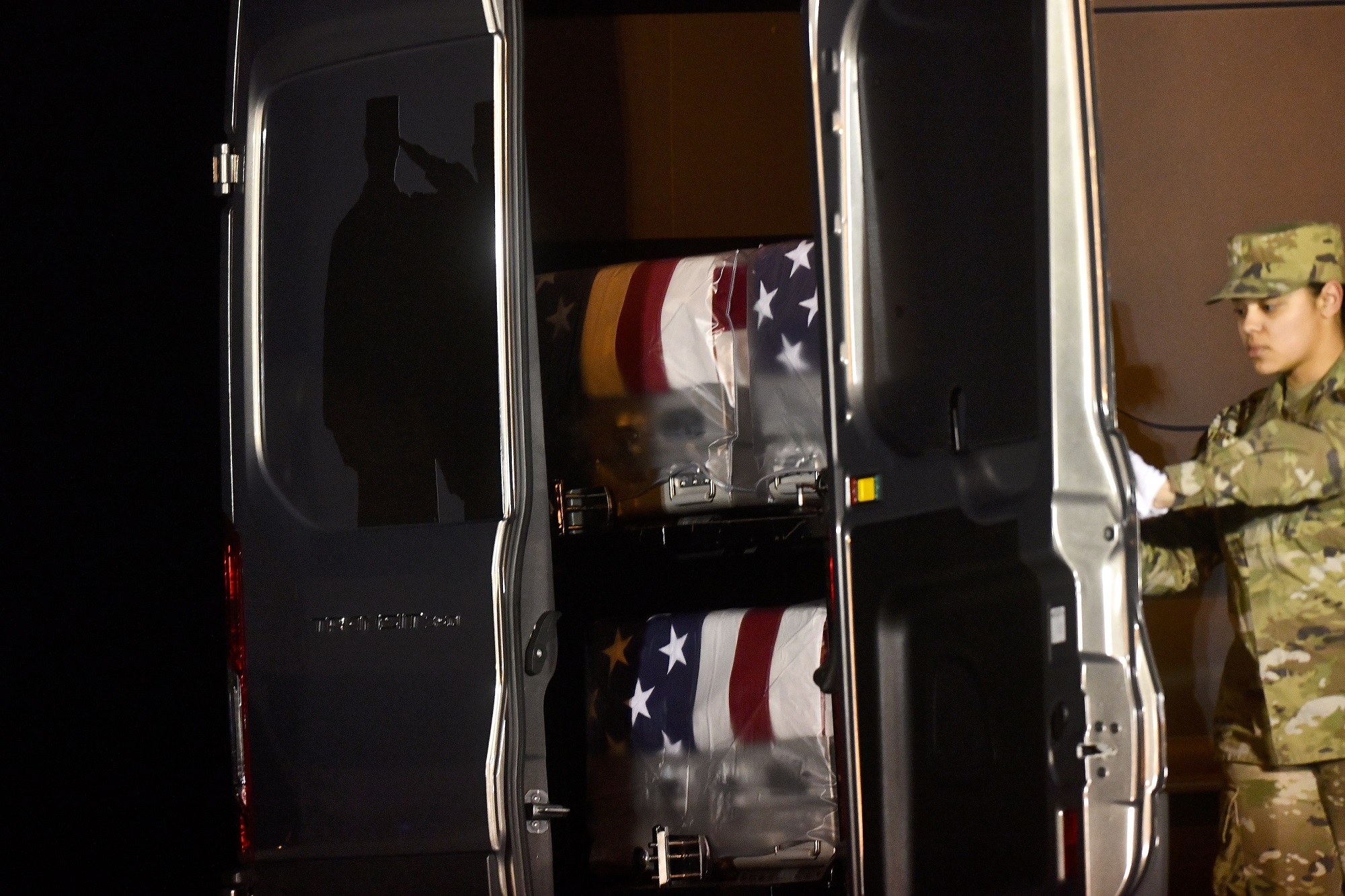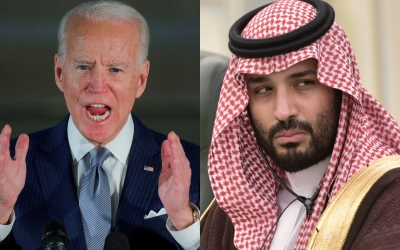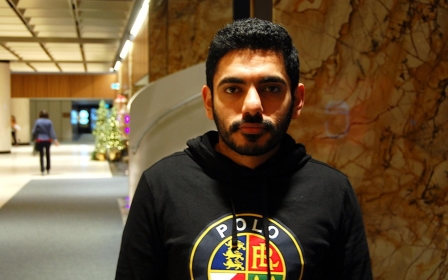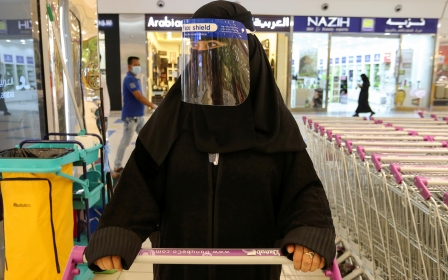Red flags went unnoticed before Saudi trainee shot US soldiers at Florida base: Report

American and Saudi authorities missed several red flags at various levels while vetting the al-Qaeda-linked Saudi Air Force lieutenant who killed three people and wounded eight others at a US Navy base in Florida late last year.
A New York Times report published on Sunday detailed how multiple levels of checks failed to raise suspicions about the 21-year-old shooter, Mohammed Alshamrani, who was training with the US military at Pensacola in northwest Florida.
The attacker had been in contact with Al-Qaeda in the Arabian Peninsula (AQAP), the Yemeni branch of the group, for two years before the attack, the FBI said last month.
But there were more glaring alarm bells that went unnoticed, the Times reported. Alshamrani, who was shot and killed by Florida sheriff deputies during the attack, followed hardline clerics on Twitter before he graduated from the King Faisal Air Academy in 2017.
The Times reported that the shooter had a pattern of "troubling social media activity that connected him with extremist ideology".
New MEE newsletter: Jerusalem Dispatch
Sign up to get the latest insights and analysis on Israel-Palestine, alongside Turkey Unpacked and other MEE newsletters
His online activity could have disqualified him from joining the Saudi military. The US State Department, via the American embassy in Riyadh, did not check on Alshamrani's social media history when granting him a diplomatic visa because it was not required at the time.
Once in the United States, the lieutenant used an American phone and network to contact the AQAP - communication that went undetected by US intelligence agencies.
Given Florida's lax gun laws, the Saudi lieutenant purchased a pistol with an extended magazine. As a foreign trainee, the stringent monitoring of recruits' movement in the US military did not apply to him.
"All the vetting in the world isn't going to work if the Saudi ministry responsible for internal security is asleep at the switch," Bruce Riedel, a former CIA officer, told the Times. "Al Qaeda has infiltrated the Saudi military and the Ministry of Interior was unaware of that."
The attack came amid growing questions over US-Saudi relations, as critics of the relationship push to hold the kingdom accountable for the murder of Jamal Khashoggi and ongoing abuses in Yemen.
President Donald Trump, a steadfast ally of Saudi Crown Prince Mohammed bin Salman (MBS), has resisted calls to halt weapon sales to Riyadh. He even thanked MBS after the attack for what he called "Saudi Arabia's assistance with the investigation and continued partnership".
The Times' report renewed the scrutiny over Washington's alliance with Riyadh.
"We are so beset with crises that the first successful al-Qaeda attack inside the United States since 9/11 is not a major story," former US diplomat Brett McGurk wrote on Twitter on Monday.
"This attack should have been stopped. Multiple warnings missed. Three American sailors died."
Middle East Eye delivers independent and unrivalled coverage and analysis of the Middle East, North Africa and beyond. To learn more about republishing this content and the associated fees, please fill out this form. More about MEE can be found here.





